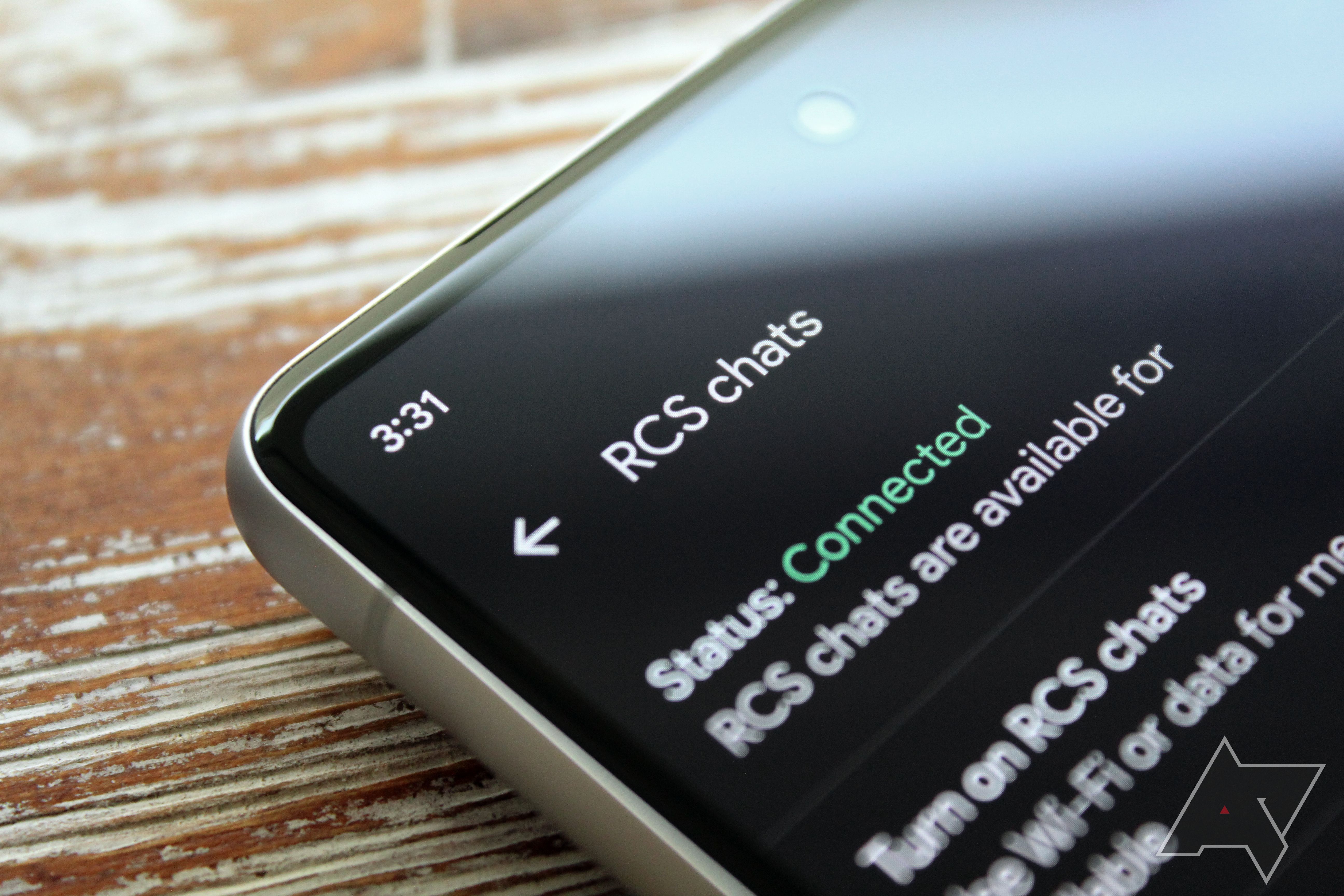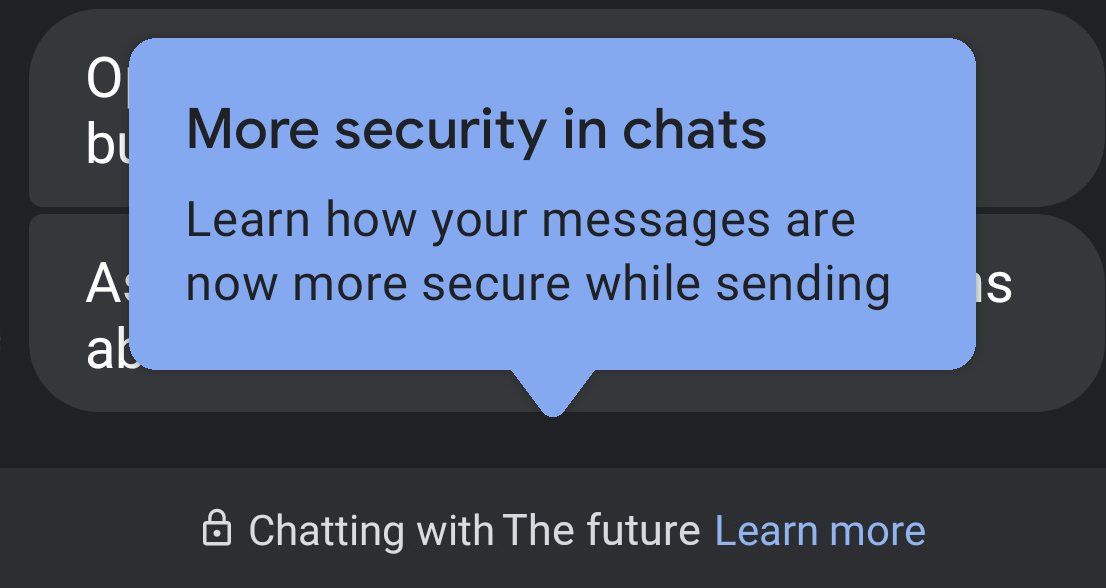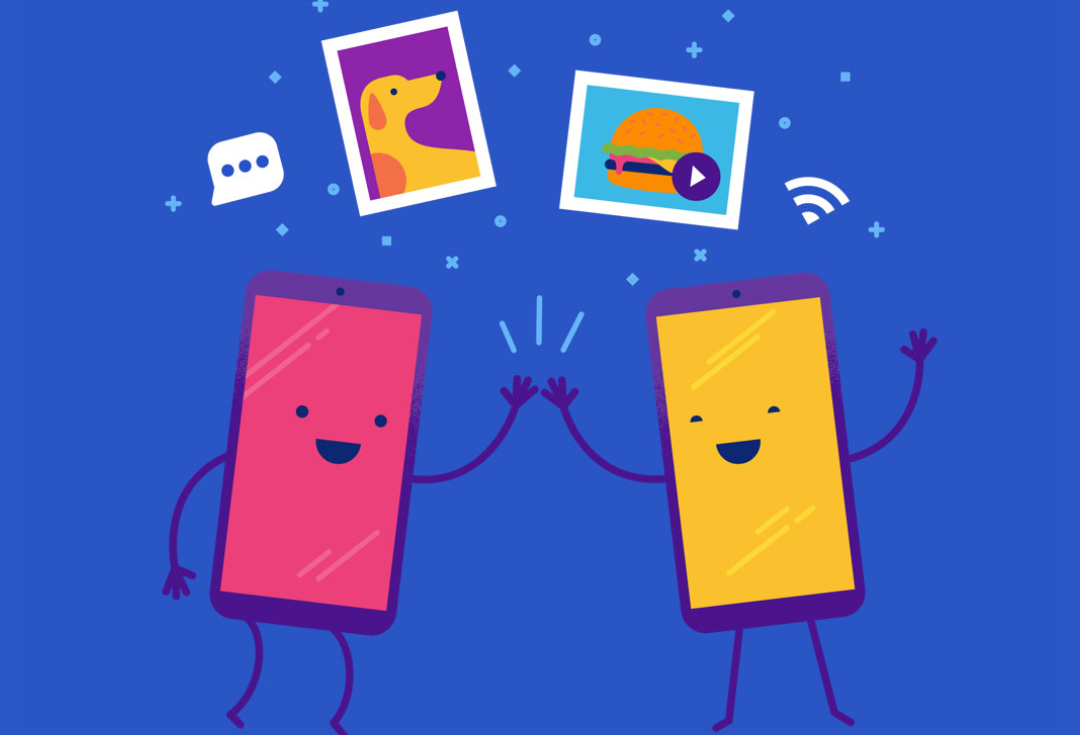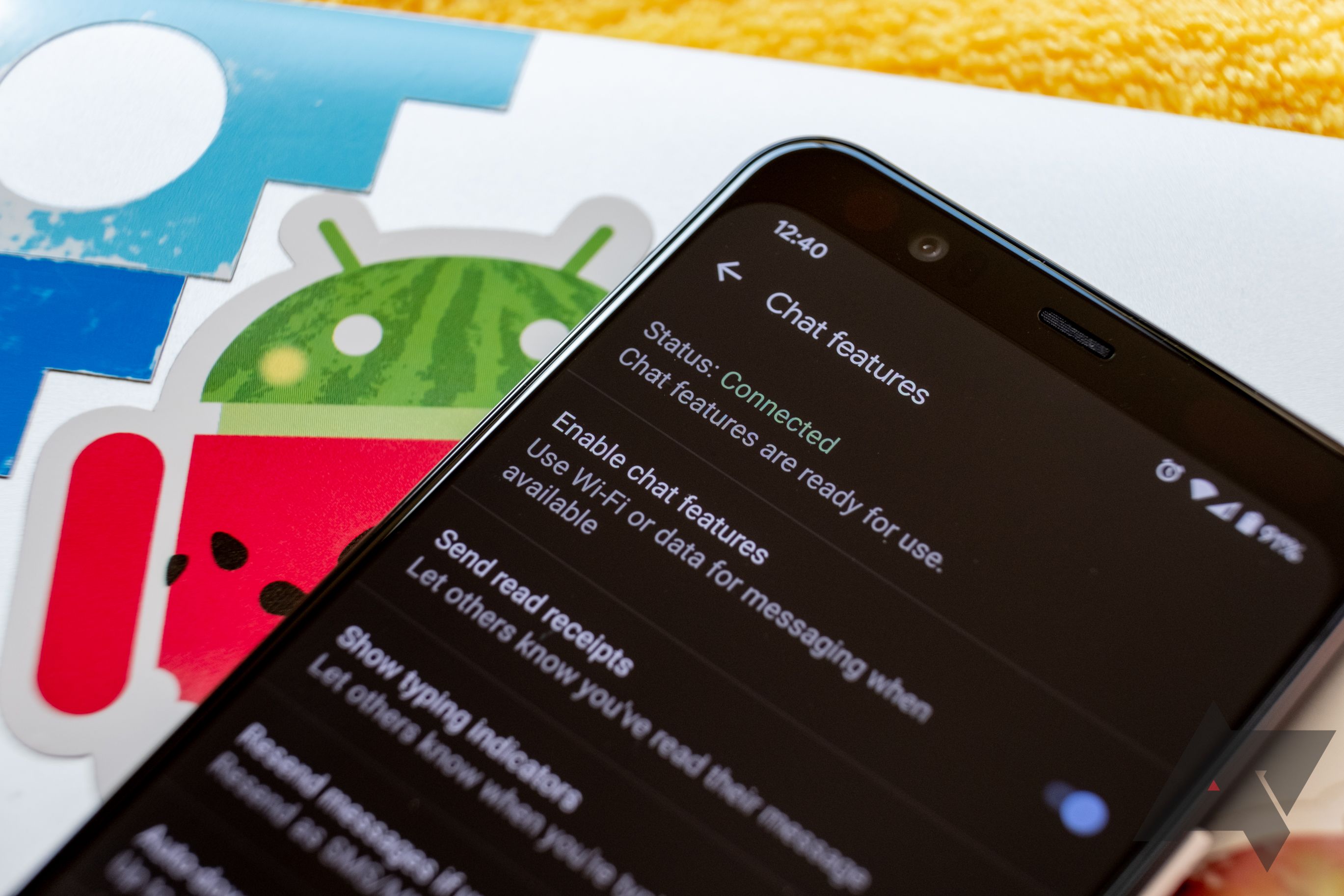latest

Another major carrier is moving its RCS services to Google Jibe
The UK's O2 network will start the migration next week
Communication has become so much easier since the first text message was sent three decades ago. Text messaging began as a short, precise, text-only, and straightforward way of communication. However, technology happened, and major companies like Google employed Rich Communication Services to move users from conventional SMS and MMS texting. While the technology is still on its way up, users can get the most out of Google Messages when it's using the Jibe service as its backend.

Google announced that end-to-end encryption was coming to its RCS messaging system last month. At the time, all we knew was that the rollout would begin soon via Google's Messages app beta. Based on our reader's reports, that rollout for end-to-end encryption has now started.

Apple is holding back messaging progress across the entire world with iMessage
SMS-based fallback flies in the face of its privacy values, too
Google's rollout of its RCS-based "Chat" in the Messages app is now complete, delivering on the years-long promise of a better, universal messaging standard on Android. But, it's still not the "iMessage for Android" many of us hoped it might be. And, perhaps ironically, it's Apple that's standing in the way of that.

Google RCS Chat now available worldwide, end-to-end encryption coming soon
Sign up for the beta to get it early
Google's RCS-based messaging initiative has reached one major milestone today as it announces preparations for another. As of today, Google's RCS is available worldwide (with a handful of seemingly permanent exceptions), and end-to-end encryption will start rolling out for beta testers this month.

Google's rollout of RCS chat via Jibe in its Messages app has just about enveloped the world — we haven't covered every new country, but we've seen a steady trickle of reports from new markets as it slowly makes its way around the globe. But while chat is useful, sometimes it doesn't quite work as it should, and though fallback mechanisms are in place, they can take a bit to kick in. So here's a recently spotted tip that lets you quickly and easily force any RCS/chat message in-progress in the Messages app to immediately fall back to SMS.

Last year, when Google first started rolling out its first-party RCS chat system, the company promised an easier way for folks to "deregister" their phone numbers in the event they switch platforms. Like iMessage, the system required a phone number-based registration, and that could mean missed messages if you forgot to disable the feature before changing to an unsupported device. Today that's no longer a problem: You can now deregister your phone number and disable chat with an easy form that's basically identical to Apple's system.

T-Mobile now connects to Google’s RCS servers
Allowing T-Mobile subscribers to chat with more people using RCS
RCS has always been advertised as the next-generation SMS replacement, but carriers haven't exactly been rushing to roll out the new chat features. That's why Google took matters into its own hands and rolled out its Jibe-supported network via its Messages app, but solutions like T-Mobile's Advanced Messaging haven't been compatible. That's changing, as T-Mobile and Google have teamed up to upgrade the carrier's RCS implementation and make it work with any network connected to Jibe across the globe.

Those RCS chat 'hacks' for Messages are starting to break in unsupported countries, just as Google said (Updated)
As promised, Google is killing the workaround
Read update
Before Google saved us all from the tyranny of the carriers, some enterprising folks worked out a sort of "hack" that enabled Google's RCS/chat services, letting us all send messages with the futuristic protocol, even if we weren't in one of the few supported markets. When it did finally start rolling out in the US, Google said that those using the hack would eventually be migrated after the initial rollout was complete. Now Google has announced that it is disabling that "hack" workaround by the end of the month.

To say the rollout of Rich Communication Services (RCS) has been a slog is one of the biggest understatements of the decade. Google bit the bullet and started to roll out RCS on its own with the promise of widespread availability by the end 2019. This week, Google is delivering on that promise by extending RCS to US Android devices via a Carrier Services update.

Following the formal reveal that Google is rolling out its flavor of RCS in the US, we had a few lingering questions, like what happens to folks that previously used the "hack," has the security used by Google's RCS changed at all to accommodate the US market, and is Google going to open its solution up for other messaging apps? (All among a longer list of even more technical questions.)

I don’t know how many people have taken advantage of the RCS “hack” recently discovered in Google Messages, which allows almost anyone to hop onto Google’s Jibe servers for RCS/Chat messaging, but it must be a pretty insane number given the attention our walkthrough has received. For some of those folks, this last week has been a source of anxiety, too, as all of us enjoying the new “Chat” features are left wondering whether or not Google will let this carrier circumvention fly. There was even a small hiccup that stirred up some panic. But if Google really wants what is best for consumers, it should do more than just ignore this apparent workaround. I think that Google should officially roll out Jibe via the Messages app worldwide. And that includes the US — carriers be damned.

Google continues to invest heavily into getting as many partners as it can to start using Rich Communication Services (RCS). RCS, the new standard that aims to replace SMS and MMS, was first championed by Google back in 2015 and is powered by Google's Jibe RCS cloud platform — at least in Google's embodiment of RCS. As of today, there are already 43 carriers and manufacturers that have partnered with Google to create a more dynamic and rich messaging experience.

Read update
- In a new blog post from Google, the company announced that Jibe RCS is also rolling out to América Movil, AT&T in Mexico, Oi, and Telefónica over the coming months.
Just over 25 years ago, the first text message was sent. Not all technology can last a quarter of a century, but that doesn't mean it can't be improved. RCS is the cloud-powered standard designed to eventually replace SMS, but adoption has been slow. The next carrier to support the technology isn't Verizon, or AT&T, or T-Mobile - it's one that operates in northern Europe.

Read update
RCS, short for Rich Communication Services, has been aiming to replace SMS for years. But unlike the universal SMS standard, there are multiple RCS implementations that don't work with each other. Google has been trying to solve this, by adding RCS support to Google Messenger and working with carriers to implement Jibe's 'Universal RCS Profile.'

A little over a week ago, we first detected several less-than-subtle hints of Rich Communication Services, more commonly known as RCS, in Google Messenger 2.0's code. In case you don't know what RCS is, it essentially adds some useful features to SMS that are similar to what you'll find in Apple's iMessage. Now, for a select few, Google has flipped a server-side switch for RCS.








